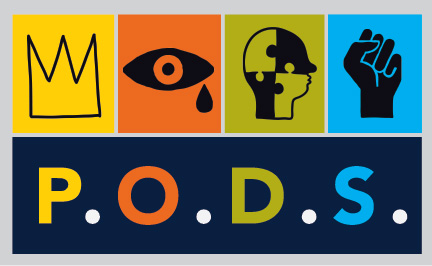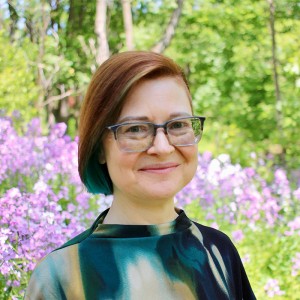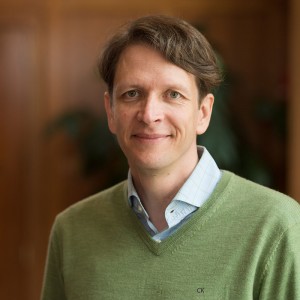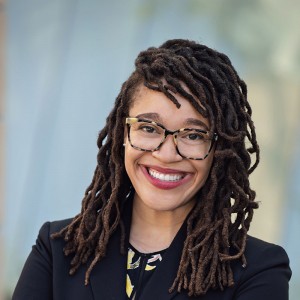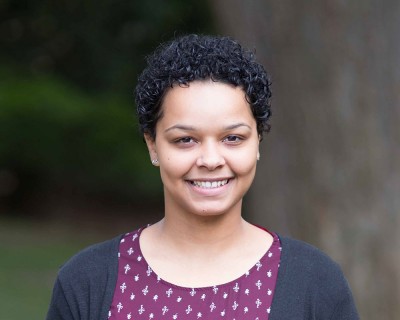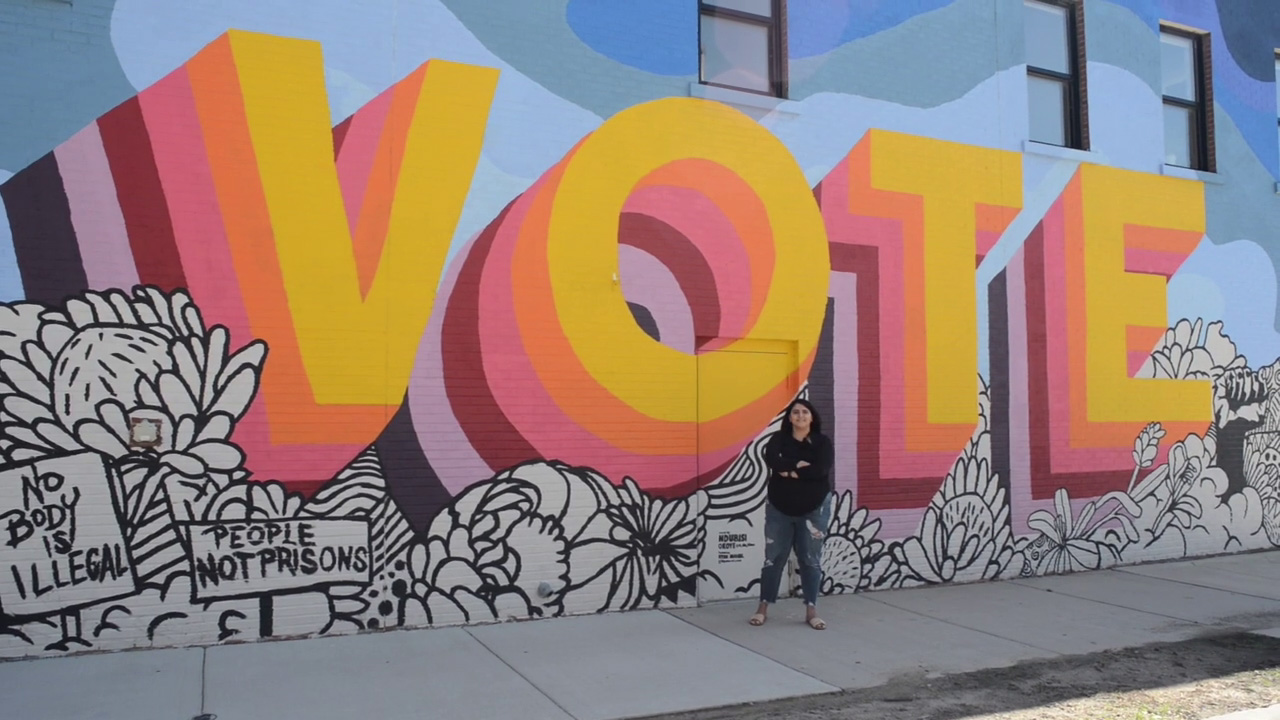
Jessica Ayoub, MSW '15, speaks about her experience at U-M and her role as the Public Engagement Strategist at the ACLU of Michigan.
Watch the video.
Community Change
The Community Change Pathway will engage students in developing a critical and reflexive understanding of the theory, models, and skills needed to promote action and change with diverse communities. This includes understanding various approaches to creating change, including community organizing, community development, community planning, community-based policy advocacy, popular education, and the various strategies and considerations needed for each strategy. It also includes a focus on understanding the contexts of communities and on power, privilege, oppression, praxis, and social justice within community change work. This pathway aims to balance historical examples with cutting edge practices and skills, drawing on case examples and real-world experiences of individuals and communities engaged in community change. This pathway embeds Community and Social Services content throughout all courses.
Careers
Examples of career (job) titles and positions relevant to this pathway include but are not limited to:
- Campus/Community Partnership
- Community Liaison
- Community Organizer
- Community Outreach Coordinator
- Director of Public Policy
- Director/Coordinator
- Evaluation Specialist
- Food Access Coordinator
- Government Relations Officer
- Program Director
- Program Manager
- Project Manager
- Public Engagement Strategist
- Services Specialist
- Volunteer Engagement Manager
Field Experience
Types of agencies and settings where students in this pathway may engage in field learning:
- Community Based Organizations
- Cooperatives and Collectives
- Advocacy Based Organizations
- Higher Education
- Neighborhood Development
- Youth Development and Mentorship Programs
- Environmental Justice Organizations
- Food Security Programs
- Health Promotion Organizations
- Community Cultural Arts Programs
Program Details
Community Change Pathway Course Requirements
Essentials
- SW505: Engaging Social Justice, Diversity, and Oppression in Social Work, 3 credits
- SW506: Essentials of Interpersonal Practice, 4 credits
- SW507: Research Basics for Social Work Practice, 1 credits
- SW508: Essentials of Social Welfare Policy, 3 credits
- SW509: Essentials of Community and Organizational Practice, 3 credits
- SW590: Introduction to Social Work Practice, 1 credits
- SW649: Practicing Policy with Current Events, 1 credits
- SW678: Program Evaluation and Applied Research, 3 credits
- SW699: Social Work Capstone, 1 credits
Pathway Requirement
- SW650: Theories and Practices of Community Change: Concepts, History and Approaches, 3 credits
- SW653: Skills and Strategy for Community Change (Urban Planning), 3 credits
Please see course planning worksheets for a full list of courses associated with this pathway.
Competencies for Community Change
University of Michigan's School of Social Work (U-M SSW) is accredited by the Commission on Accreditation (COA), of the Council on Social Work Education (CSWE). Accreditation is a system of recognizing educational programs as having a level of performance and quality that gain them the confidence of the educational community and the public. You can read more about the Educational Policy and Accreditation Standards here.
At U-M SSW, each pathway has specialized competencies that describe the knowledge, values, skills, and cognitive and affective processes that comprise the competency in each pathway area.
1. Demonstrate Ethical and Professional Behavior
Social workers demonstrate the ability to apply ethical social work principles and critical thinking to products and work produced. Social workers understand the role of emotional intelligence and professional resilience in professional and ethical practice. Social workers understand the role of other professionals when engaged in interprofessional teams within their areas of specialization. Social workers recognize the importance of life-long learning and ways that supervision and consultation can support continued development.
Practice Behaviors:
- Utilize supervision and consultation to guide professional decision-making.
- Demonstrate emotional intelligence in practice and professional situations.
- Utilize effective communication strategies appropriate to context.
- Utilize supervision and consultation to guide professional decision-making
- Demonstrate emotional intelligence in practice and professional situations
- Utilize effective communication strategies appropriate to context
2. Engage Diversity and Difference in Practice
Social workers examine the role of social identity, power, privilege, and diversity within community change work. They will examine social identity, power, and privilege within their own lives and experiences as well as the systems and forces of oppression, power, and inequity at work in society and communities. Community change specializers will work to engage diversity and difference in practice as well as work with and on behalf of constituents to change oppressive organizational practices, community conditions, and social policies to promote social change.
Practice Behaviors:
- Develop self-awareness of one’s own social identities and the impact of those identities on one’s community change work
- Identify systems of power, privilege and oppression and the forces that lead to inequity and marginalization within society and communities
- Learn skills to engage with and across diverse populations within community change efforts.
- Learn to integrate human rights frameworks into their social work practice to promote social, racial, economic and environmental justice
- Apply knowledge to advance human rights at the individual, organizational, and community levels on social, racial, economic and environmental justice issues
- Engage in skills and practices that promote human rights and social, racial, economic, and environmental justice
3. Advance Human Rights and Social, Economic, and Environmental Justice
Social workers understand the importance of a human rights framework to explore issues of social, economic, and environmental justice. Social workers develop knowledge, apply theories, and practice critical skills to advance human rights and social, economic, and environmental justice.
Practice Behaviors:
- Learn to integrate human rights frameworks into their social work practice to promote social, economic and environmental justice
- Apply knowledge to advance human rights at the individual, organizational, and community levels on social, economic and environmental justice issues.
- Engage in skills and practices that promote human rights and social, economic, and environmental justice.
- Develop self-awareness of one’s own social identities and the impact of those identities on one’s community change work
- Identify systems of power, privilege and oppression and the forces that lead to racial inequity and marginalization within society and communities
- Learn skills to engage with and across diverse populations within community change efforts
4. Engage in Practice-informed Research and Research-informed Practice
Social workers understand how social workers as community change makers intervene at an individual, organizational and community level. Social workers understand how to identify and apply relevant evidence-informed community theories and practices in their work. Social workers develop critical skills to understand the role of intersectional identity and diverse stakeholder groups and the impact of this in community change efforts.
Practice Behaviors:
- Apply critical thinking to community change efforts
- Use community theory to inform practice
- Use and translate research on community change to inform practice
- Apply critical thinking to community change efforts
- Use community theory to inform practice
- Use and translate research on community change to inform practice
5. Engage in Policy Practice
Social workers understand how to analyze, formulate, and advocate for policies that advance human rights and social, economic, and/or environmental justice through the application of critical thinking skills. Social workers are able to identify how current events are linked to policy issues, how to critically analyze and understand policy implications, and apply strategies to engage in policy practice that effect change and advocate for clients.
Practice Behaviors:
- Identify how current events are linked to policy issues impacting clients and client systems.
- Analyze the implications of policy across service systems.
- Identify strategies to engage with policy to advocate for clients and client systems.
- Identify how current events are linked to policy issues impacting clients and client systems
- Analyze the implications of policy across service systems
- Identify strategies to engage with policy to advocate for clients and client systems
6. Engage with Individuals, Families, Groups, Organizations, and Communities
Social workers understand how social workers engage with various stakeholders to work for community change and the importance of relationships to community change efforts. Social workers learn skills to engage diverse stakeholders and build relationships with individuals, families, groups, organizations, and communities.
Practice Behaviors:
- Develop strategies for effective relationship building across diverse stakeholder groups and across context
- Develop self-awareness of one’s own social identities and the impact of those identities on the ability to engage with others.
- Critically examine different models for engagement and knowledge about when to engage each model.
- Develop strategies for effective relationship building across diverse stakeholder groups and across context
- Develop self-awareness of one’s own social identities and the impact of those identities on the ability to engage with others
- Critically examine different models for engagement and knowledge about when to engage each model
7. Assess Individuals, Families, Groups, Organizations, and Communities
Social workers understand the importance of assessment within community change work. Social workers learn skills to conduct community-based assessments and to engage community members in the assessment process. Social workers critically examine assessment practices to explore for bias and to examine alternative, anti-oppressive approaches.
Practice Behaviors:
- Develop skills for conducting assessments in diverse communities
- Learn strategies to engage community members in assessment processes drawing on community-based participatory research and evaluation approaches
- Apply critical thinking to explore bias in assessment practices
- Develop skills for conducting assessments in diverse communities
- Learn strategies to engage community members in assessment processes drawing on community-based participatory research and evaluation approaches
- Apply critical thinking to explore bias in assessment practices
8. Intervene with Individuals, Families, Groups, Organizations, and Communities
Social workers understand the importance of intervention within community change work. Social workers learn skills to conduct community member engaged service plans including intake, referral, monitoring, assessment, and remediation strategies. Social workers critically examine service delivery practices and related strategies and tactics to explore bias and to examine, implement and assess alternative, anti-oppressive approaches
Practice Behaviors:
- Develop skills for conducting and facilitating case management and intake procedures in diverse communities
- Learn strategies to engage community members in individual and collective solution-focused advocacy processes and strategies drawing on community-based participatory research and evaluation approaches
- Apply critical thinking to explore bias in access and remediation practices
- Develop skills for conducting and facilitating case management and intake procedures in diverse communities
- Learn strategies to engage community members in individual and collective solution-focused advocacy processes and strategies drawing on community-based participatory research and evaluation approaches
- Apply critical thinking to explore bias in access and remediation practices
9. Evaluate Practice with Individuals, Families, Groups, Organizations, and Communities
Social workers understand the importance of evaluating practice within community change work. Social workers learn skills to conduct community-based participatory research and evaluation approaches. Social workers critically examine research design practices and related strategies and tactics to explore bias and to examine, implement and assess alternative, anti-oppressive community-based participation designs.
Practice Behaviors:
- Develop skills for conducting and facilitating assessments and evaluations in diverse communities
- Learn strategies to engage community members in individual and collective solution-focused evaluation processes and strategies drawing on community-based participatory research and evaluation approaches
- Apply critical thinking to explore bias in assessment and evaluation practices
- Develop skills for conducting and facilitating assessments and evaluations in diverse communities
- Learn anti-racist and anti-oppressive strategies to engage community members in individual and collective solution-focused evaluation processes and strategies drawing on community-based participatory research and evaluation approaches
- Apply critical thinking to explore bias in assessment and evaluation practices
The graduate courses listed below have been taken by previous MSW students or have been identified as being of possible interest to students in this pathway and can be taken to fulfill Pathway Required Electives. On the course planning worksheet, information regarding Pathway Required Electives is included.
There are many other courses not listed below that may be of interest and may also meet the elective requirement. If you identify a pathway-related course not listed below that you want to take to meet your Pathway Required Electives (rather than simply an elective), please contact the Technical Advisors ([email protected]) for approval.
Interest in courses numbered below 500 should be checked for graduate-level status since many are offered for undergraduate credit only. You can check this by contacting the department offering the course or contacting the SSW registrar ([email protected]).
In addition, some courses may be restricted, require prerequisites, not be open to social work students, and/or require instructor permission. If you encounter problems registering for these courses, please contact the department offering the course. The SSW registrar will not be able to assist with registration in outside courses because these courses are not offered by the SSW.
The courses listed below are offered in various semesters. To see if a course is offered in the term you are interested please check the SSW list of outside courses, the website of the department offering the course, or the Wolverine Access Class Search page.
If you want to use one of these non-School of Social Work courses to fulfill the Community Change Required Electives (SWrCC), you will need to fill out a course substitution to receive approval. In the "Rationale for Substitution" box you should reference this page.
Anthropology - Cultural
- ANTHRCUL 558 - Current Issues in Sociocultural Anthropology
Learn More About Social Work
Pathway Faculty
Student Profiles
Student Profile
Jacqueline Ramsey
Jacqueline Ramsey’s interest in community change began in her hometown of Detroit, Michigan. “I grew up wondering about the history of Detroit, even as a child. I wanted to know the strengths and challenges that the city faced. As I grew older, I would become aware of the systemic issues that plagued Detroit, and ultimately wanted a say so in the path of my city.”
After graduating from Central Michigan University in Mount Pleasant, MI with a Bachelor’s Degree in Sociology: Concentration in Social & Criminal Justice, Jacqueline accepted a 1-year internship with the Charles H. Wright Museum of African American History. During her internship, Jacqueline coordinated political justice programs that empowered young adults to become active in the midterm 2018 elections. It was in this role that Jacqueline realized the importance of political engagement, especially at the local and state levels.
Student Profile
Florence J. Alexander
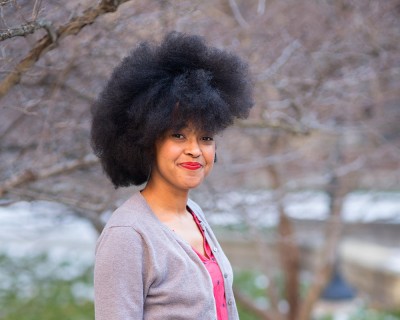
-
Scholarship:National Community Scholar
-
Field Placement:One Love Global Lansing, MIHyde Square Task Force, Boston, MA
Florence J. Alexander’s interest in community organizing, policy, and evaluation work stems from her inspiration from her parents, sisters, and brother Hubert, Josephine, Breannah, Andrea, Crystal, Hubert JR, & Adora in her hometown of Saginaw, MI. “My dad is a retired firefighter and my mom is a retired nurse, and showed me the true meaning of helping others and caring for communities. My sister, Breannah introduced me to volunteering, looking over grants, and community service in middle school through the youth advisory council and inspired me before I even knew what I should pursue. I want to change curriculum so black and brown folxs see ourselves in what we learn, create beautiful events, celebrate cultures, and serve communities in whichever way I can.”
During her undergraduate years at Saginaw Valley State University, Florence researched recidivism and community outreach programs with Project Safe Neighborhoods, worked at Girl Scouts, and served as a mentor with the Youth First program in Saginaw, MI. After undergraduate, Florence then moved to Boston to serve in AmeriCorps, and prepared to apply to the U-M School of Social Work.

